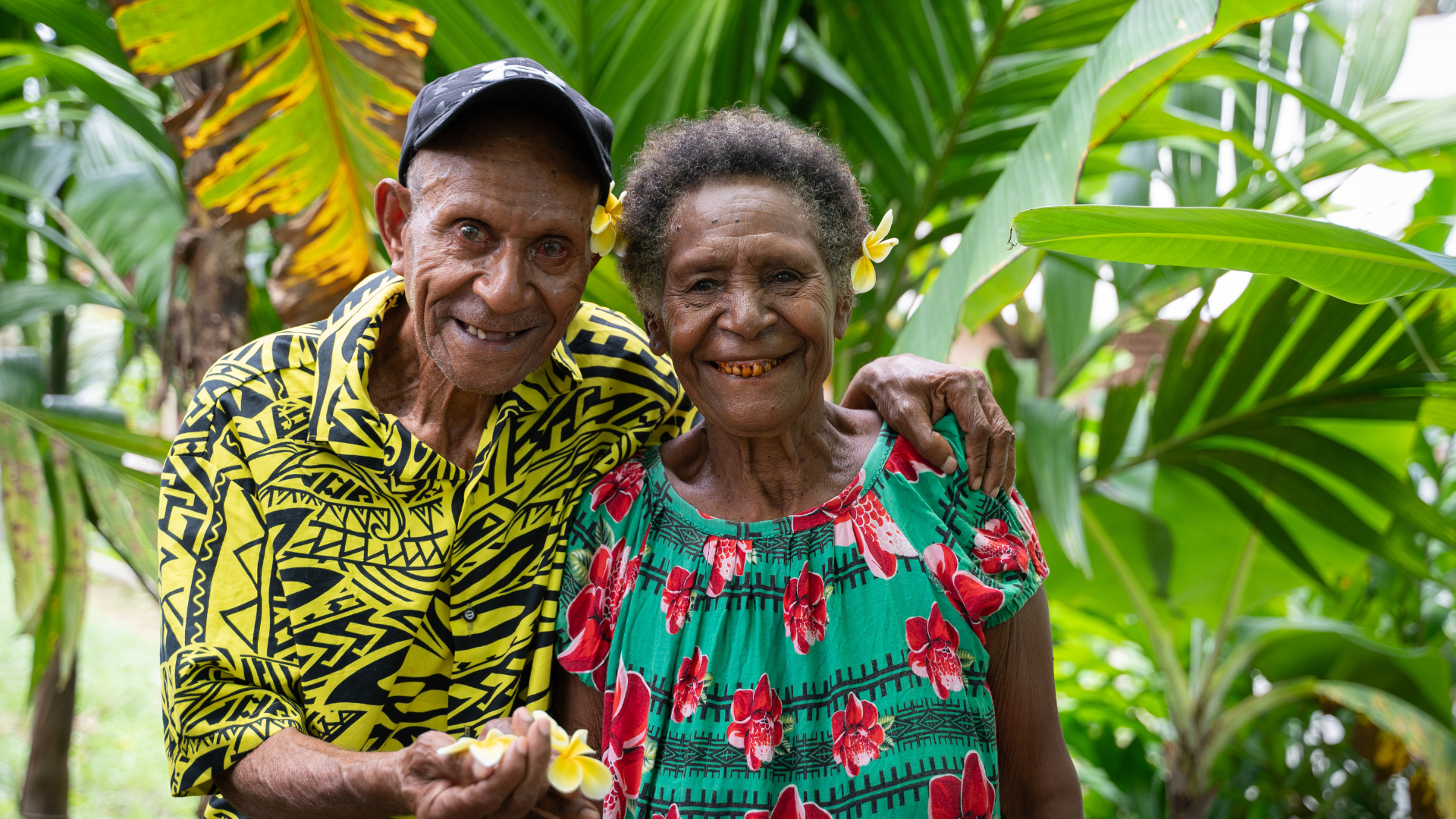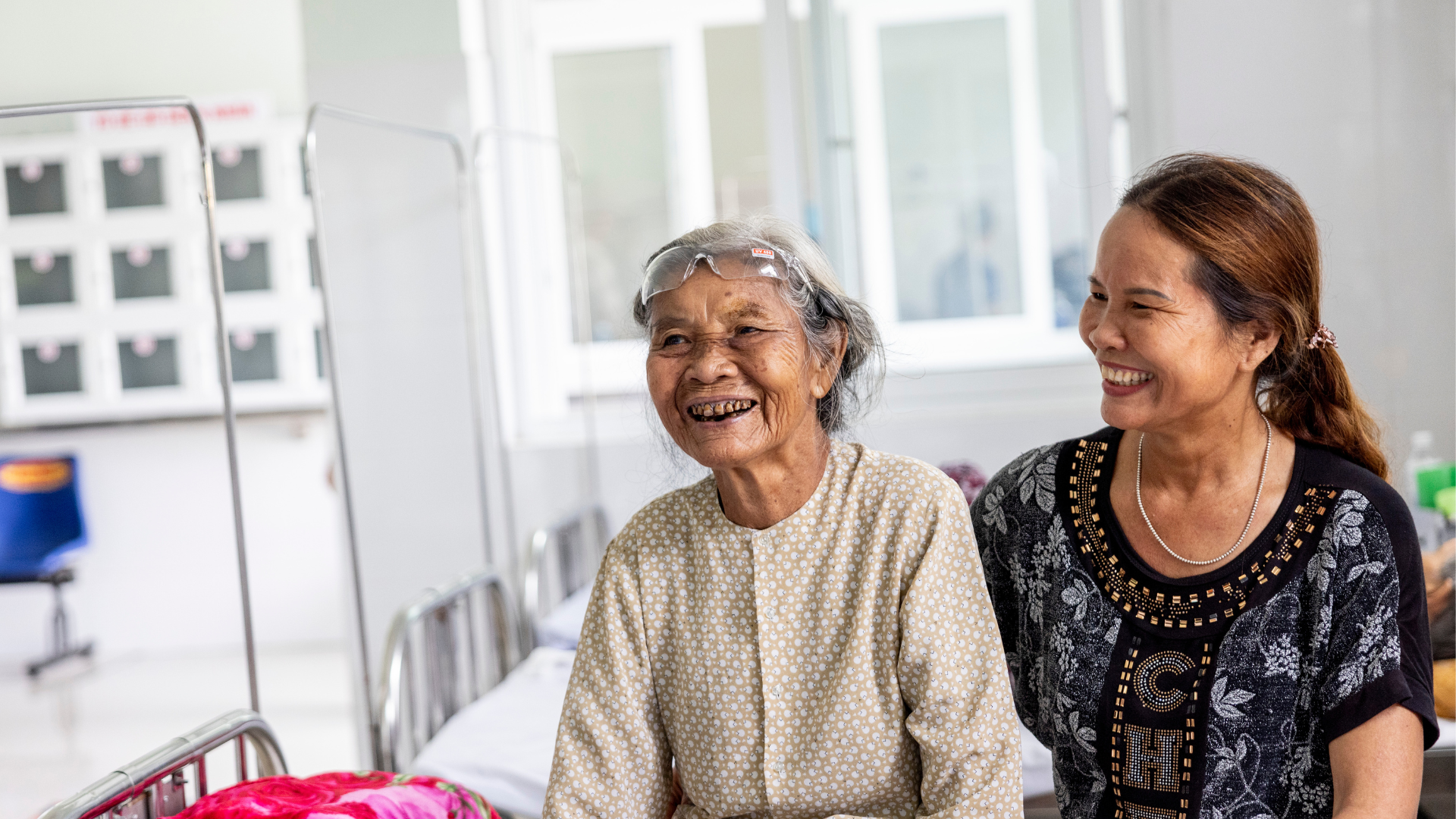Why our focus on healthy ageing?
Older people are disproportionately affected by avoidable vision loss.
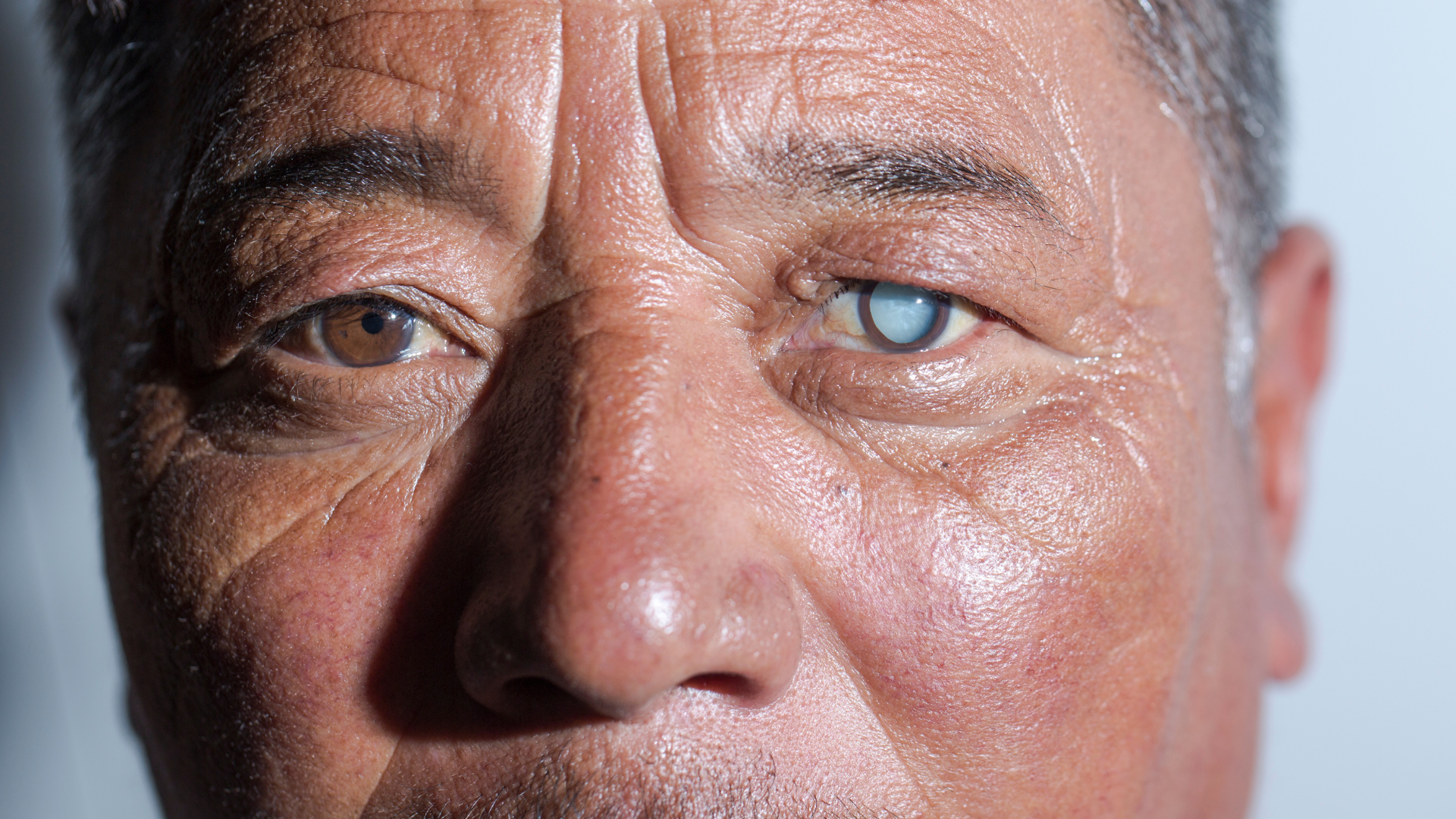
The hidden toll
73% of people with avoidable vision impairment are older adults—that’s 800 million people worldwide struggling with preventable vision loss.

The numbers are rising
With ageing populations, this figure is projected to reach 1.28 billion by 2050, making access to eye care more critical than ever.
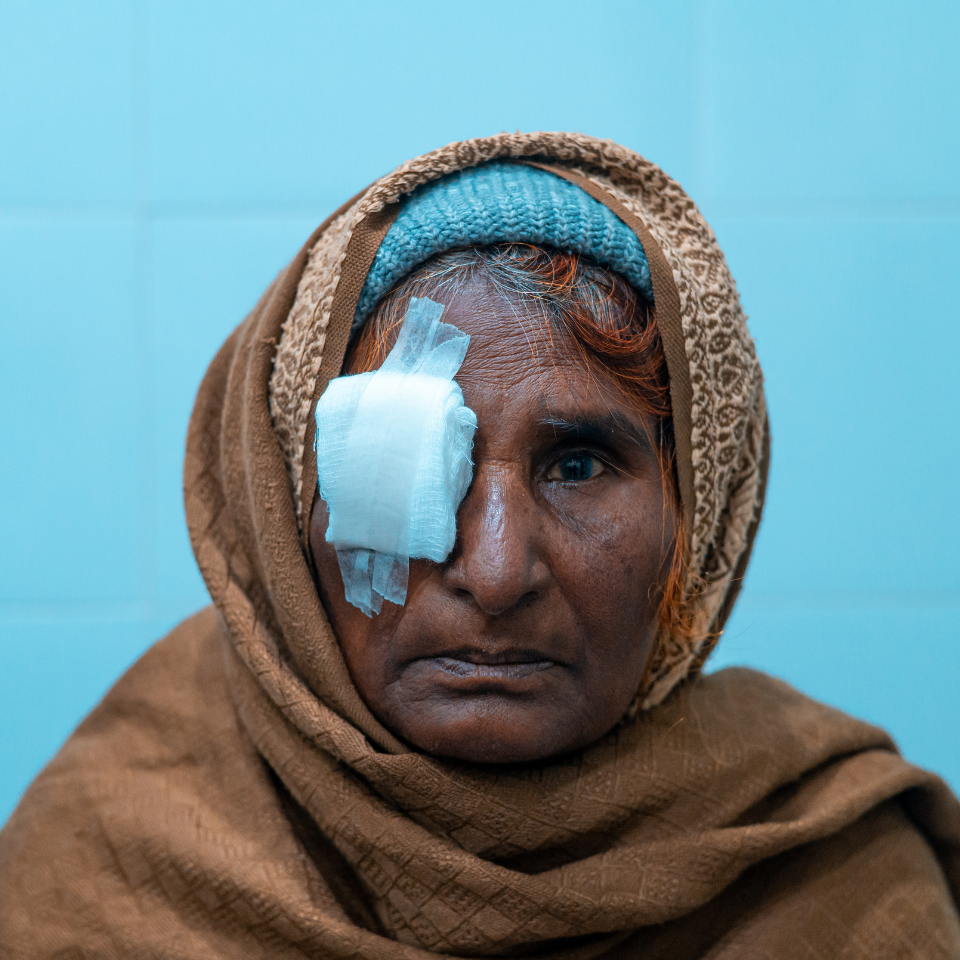
Inequity at the core
Avoidable vision loss in older age stems from inequity—especially for women, those in poverty, and people with low education—and reinforces it by limiting opportunities and deepening exclusion.
Vision matters for healthy ageing
Health & wellbeing
Vision loss increases the risk of mortality, chronic conditions (e.g., cardiovascular disease, hearing impairment), cognitive decline, and depression, leading to overall poorer health in older people.
Independence & mobility
Good vision allows older adults to care for themselves and move safely, reducing the risk of falls and fractures, which are leading causes of injury in older people.
Inclusion & participation
Clear vision enables continued engagement in work, education, and community life, preventing social isolation, exclusion, and poverty in older age.
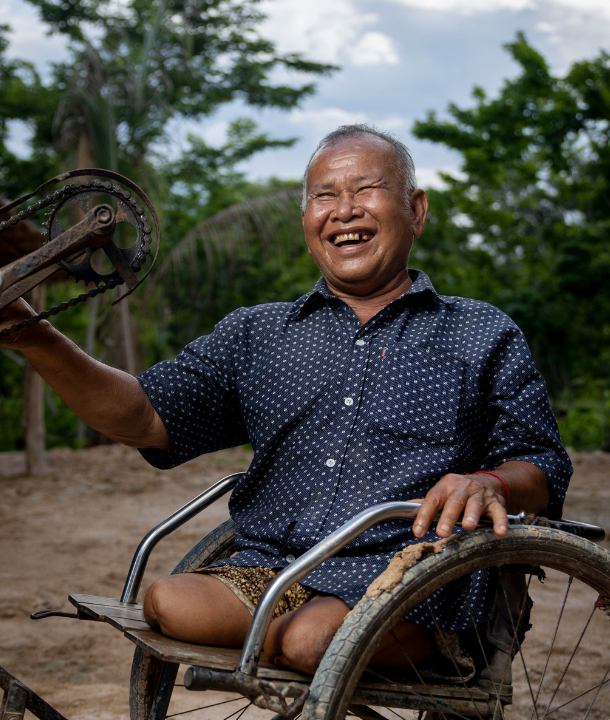
Our work in healthy ageing
Millions of older people live with avoidable blindness because they lack access to quality eye care. A simple, cost-effective procedure—like cataract surgery—could restore their vision and independence, yet many remain blind due to healthcare inequities.
At The Fred Hollows Foundation, we are working to change this. Through our programs, we bring affordable, high-quality eye care to those who need it most, ensuring healthy ageing is possible for everyone. Our innovative projects deliver integrated healthcare to effectively address the complex and chronic needs of older populations, including eye health and a range of other conditions. We are already transforming lives in China, Vietnam, Ethiopia, Uganda, and Kenya, with our impact continuing to grow worldwide, supporting the UN Decade of Healthy Ageing (2021–2030).
Help us continue this life-changing work.

Clear vision, healthy future
Vision is at the heart of healthy ageing, impacting not just an individual's ability to see but also their overall health and wellbeing.
Dr Vânia de la Fuente-Núñez, Healthy Ageing Senior Advisor at The Fred Hollows Foundation, highlights the serious consequences of vision loss in older age:
"Losing sight means facing an increased risk of mortality, cognitive decline, and depression, and, where environments are not accessible, it often means losing your independence, confining many older people to their home, and increasing social isolation and loneliness in later life.”
The report Connecting Healthy Ageing and Vision provides an overview of the eye health of older people today. It proposes key actions to protect and preserve vision in later life, emphasising the need for stronger collaboration between the eye health and ageing sectors.
Eliminating barriers for older women
Existing inequities in healthcare access and other socioeconomic factors contribute to the increased burden of vision impairment among older people, with a notable impact on older women and those with limited education or lower income levels.
Older women bear a disproportionate burden, accounting for 56 percent of vision loss cases in the second half of life. They frequently encounter substantial barriers and compounded forms of bias, including ageism and sexism, resulting in unequal access to services and treatment compared to men.
Caregivers of people with vision loss are often women and girls, including older women, who struggle to balance their own needs with caregiving responsibilities. This can lead to anxiety, depression, lost opportunities for education or income, and financial hardship for families.

Restoring sight for older women like Sok
After years of struggling with vision loss, 58-year-old Sok was completely blind and unable to work—placing immense strain on her family. With support from The Fred Hollows Foundation, she received sight-saving surgery. Now, Sok can age on her terms—staying independent, connected to her children and grandchildren, and in control of her health and wellbeing.
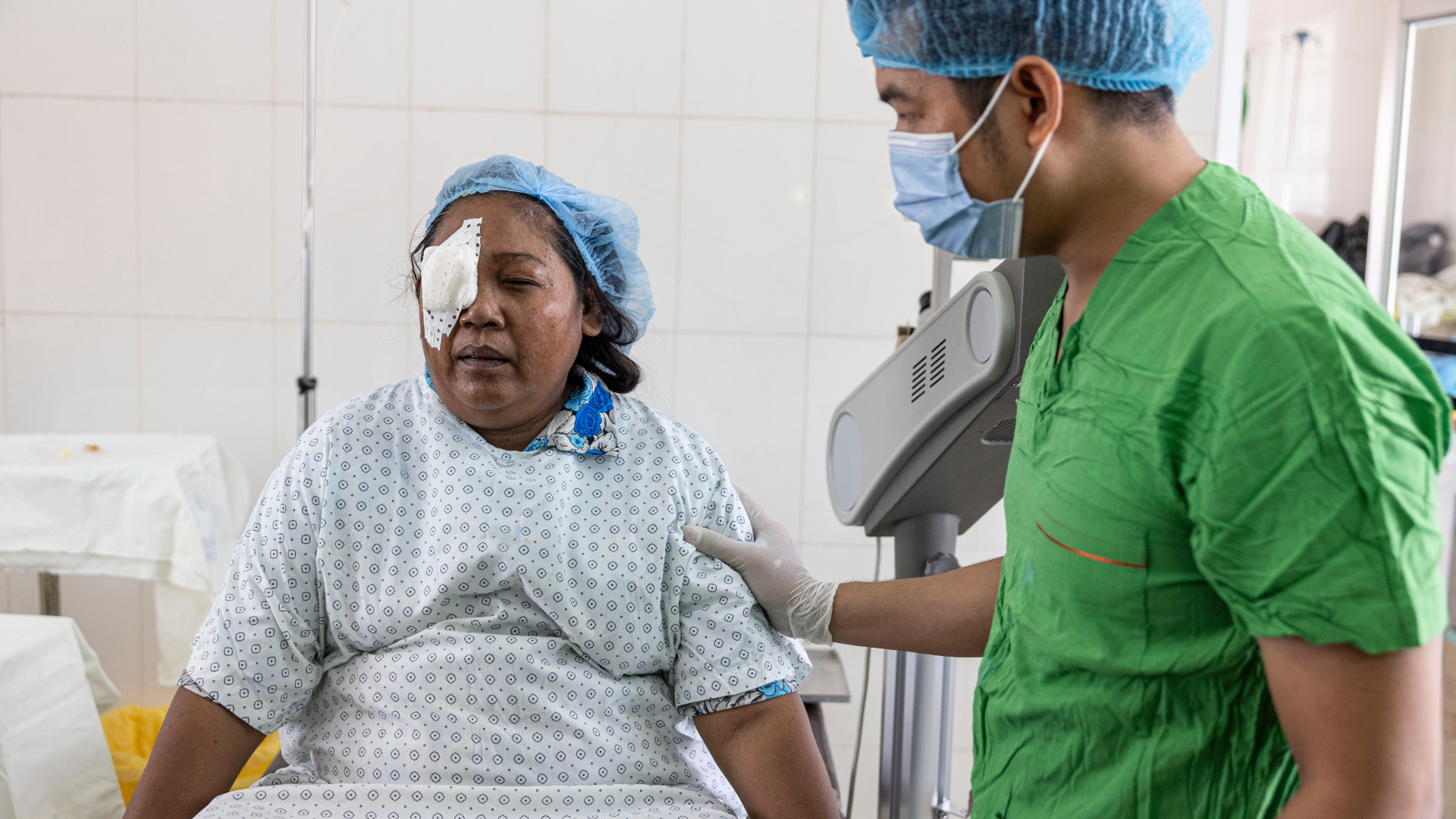
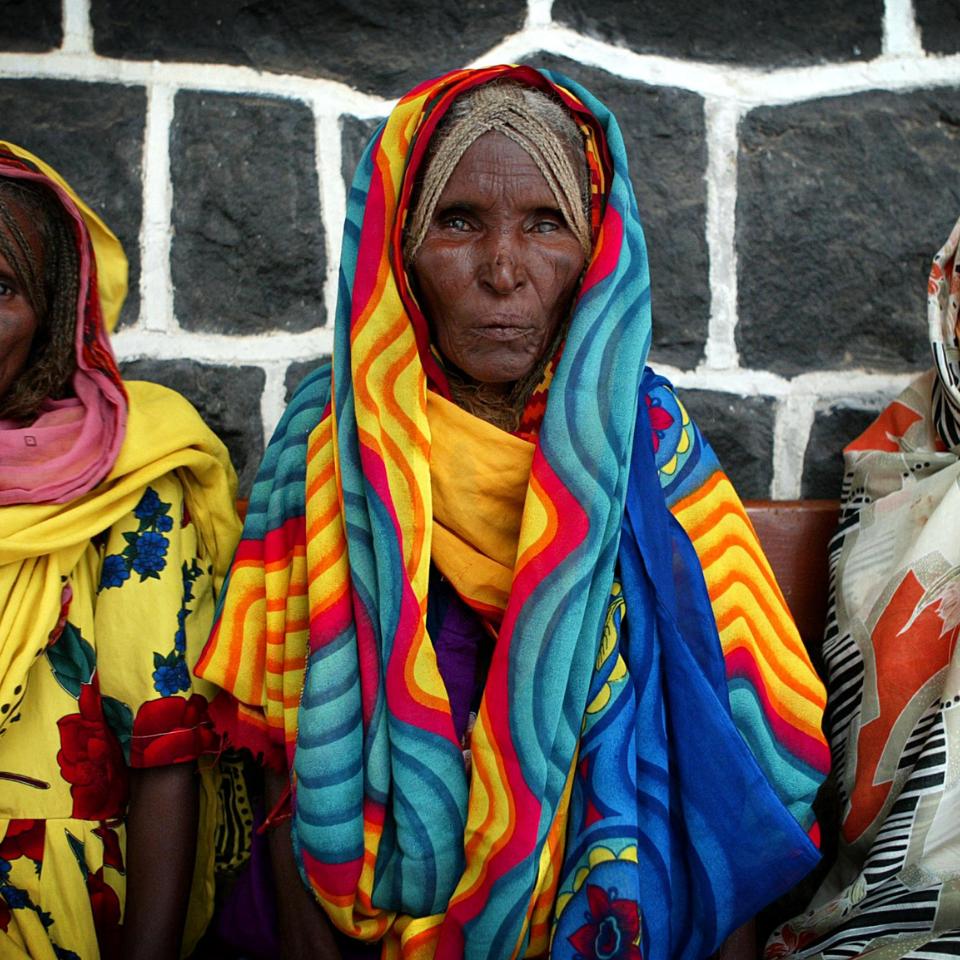
Advancing research to drive impact
Ending avoidable vision loss in older age starts with understanding healthcare gaps and identifying the best solutions. That’s why we invest in high-impact research—gathering critical insights to shape better policies, stronger health systems, and more effective interventions.
Our research focuses on the healthcare preferences, unmet care needs, and barriers older people face in accessing healthcare. We use these insights to advocate for better services, support governments, and collaborate with partners to develop sustainable solutions for healthy ageing. Every study, data point, and breakthrough brings us closer to a future where no older person is needlessly blind.
Check out our new report on The Intersection of Ageism and Ableism below.

Advocating and partnering for change
Ensuring older people have access to eye care requires more than service delivery. It demands strong advocacy, policy change, and cross-sector collaboration for lasting impact.
At The Fred Hollows Foundation, we work with governments, policymakers, and global health leaders to prioritise eye care within ageing and health agendas. We advocate for policies that expand access to assistive technologies like glasses and bring together experts from the ageing and vision sectors to address the unique eye health challenges in later life. Through this work, we amplify our impact—ensuring vision care is integrated into broader health and ageing policies worldwide.
